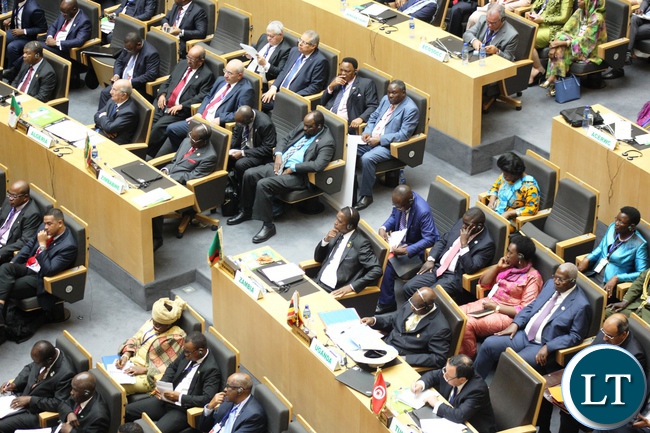By Bennedict Tembo
Removal of non-tariff barriers, creation of financial policies responsive to women and linkage between trade, peace and security in fragile states are factors heads of state and government must address as they meet on February 18 and 19 in Addis Ababa, Ethiopia to discuss the African Continental Free Trade Area (AfCFTA).
According to the African Women’s Development and Communications Network (FEMNET), a key player in the “Gender is my Agenda” Campaign Steering Committee (GIMAC); many affirmative actions that need consideration by the African heads of state and government still pend.
The GIMAC committee notes that whereas political will seems promising, implementation has been slow and shifty.
“We must address all the trade barriers to realise the change that we have been demanding for so long. Our words are not just mere sentiments for people to react to whenever it is convenient,” said, Memory Kachambwa, the Executive Director of FEMNET.
While speaking at a high level panel on AfCFTA in Addis Ababa on Tuesday, Kachambwa insisted that AfCTFA needs to look at the socio-economic barriers that go beyond trade because of the cross cutting issues that also affect trade in general.
She said, “If we had an eco-system of start ups to help African women jump start their businesses with reliable capital, we would be a step ahead.
”AfCFTA is a key project in the implementation of the AU Agenda 2063; The Africa We Want.”
Negotiations started in June 2015 with the agreement entering into force in May 2019. As of November 2021, AfCFTA has been signed by all African countries,except Eritrea. Maria Andrea Echaz from the UN Human Rights, Office of High Commissioner said inclusion of women and girls in the AFCFTA processes must be central. She said the role of women who make up the majority of the informal economy, agriculture, and cross-border trade in Africa remaind overlooked.
“Worse, most economic policies are drafted in gender neutral language, which ignores the differentiated impact of policies on women,” said Echaz.
She urged policy makers to gather and disaggregate data by gender and analyse the impact of AfCFTA on women, design measures and trade agreements that do not lead to s rise in commercial sexual exploitation of girls and child trafficking.
“We know that the informal economy is made up by women yet their urgency and intellectual might is often overshadowed! Unless this is amended, it may be challenging for Africans to realize their fullpotential,” said Munnira Katangole, a 19-year-old gender activist.
AfCFTA is designed to boost intra-African trade by up to 52.3 percent and it is expected to expand Africa’s economy to $29 trillion dollars by 2050.
Informal and cross border trade accounts for 70 percent of the economy in sub-Saharan Africa, and is a source of income for 43 percent of Africa’s population.
Women in Africa constitute 70 percent of the informal cross-border traders.
However, according to Lina Asimwe from the Eastern African Sub-regional Support Initiative (EASSI), two scenarios confront AfCFTA; borders across stable nations where women trade with ease and those that are problematic which manifest in abrupt border closures, gun-trotting armed groups and untrained customs officials.
“Women in unstable borders often seek alternative routes to ply their trade at the risk of abuse, sexual harassment and violence. When such incidents happen, it becomes hard to track and take legal action against perpetrators since most tend to be militias of vigilantes armed to cater for the interest of warlords in control of these borders,” she said.
Asimwe challenged the AU leaders to consider peace, reconciliation and justice as key components that would facilitate trade, as they remain a constraint to women traders across borders. Liz Guantai, a legal advisor at the UN also noted that women need information on rules, which tend to differ from one country to the other, procedures as well as taxi regimes.
“We must acknowledge that political will is needed for positive change,” she noted.



Like Gaddafi said. They just go there to drink a cup of tea. I would rather order gods from China or Japan. Ordering something from Nigeria or from South one would end up scammed. Interpol in South Africa or Zambia are just useless forces. How can you deal with trade barriers when suc matters cannot be dealt with.
Just talk show.
it takes more tha 5hrs to entre/ cross a boarder into zambia if you are using a car.
Tooo expensive , pay this pay that , interpooool, road tax etc plus Toll gates all the way
today we hear Trade Bulls , Bars , tatwishi okoooo.
SHAME ON AFRICA SURE
Comments are closed.